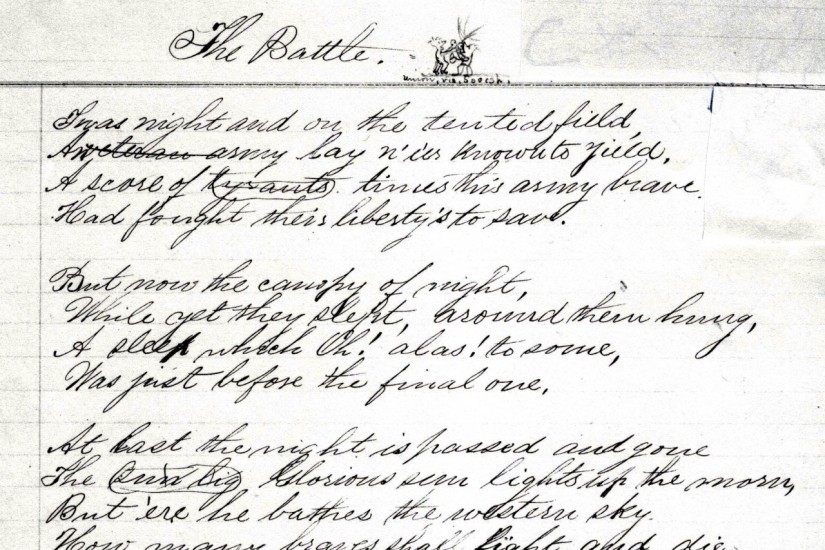A certain cohort of the baby boomer generation—boys born between the late 1940s and mid-1950s—spent their high school years wondering if they would be drawn into the Vietnam War. With older brothers, neighbors, and older friends anxiously awaiting their lottery numbers; with the nightly news and weekly news magazines providing images of the bloody and frustrating fighting a world away; and with no clear end in sight, most young boys spent their adolescence wondering if they would end up at the sharp end of war.
Those same forebodings or yearnings no doubt shaped the lives of Civil War-era teenagers, virtually all of whom would have had a family member or close neighbor in the army. In the Confederacy, almost complete mobilization occurred; in the United States, although the percentage of males of military age who served was closer to 40 percent, 81 percent of boys born in 1844 joined the Union army.[1]
A few boys—just a year or two younger than that martial cohort—attending Newark High School in New Jersey worked through their thoughts and some of their fears in the pages of the Athenaeum, a hand-written school paper published during the war. It was the second iteration of the paper. The “old Athenaeum,” as the current editors called it, had been born at the beginning of the conflict, but much had changed since then, and it was impossible for these men-in-the-making to ignore the war. At least a few of the original editors had actually gone off to war; one was an officer in the Army of the Potomac. An editorial in May 1864 remarked that the number of boys at school had dropped by half. “What makes this change[?] War! War!.” Some had joined the army but others had gone into business to replace older brothers and fathers. “They are no more,” continued the editorial in sentimental wartime rhetoric, “the vacant seats seem to proclaim.”[2]
The boys produced a few short pieces of romantic fiction, poems, and a few strained jokes (although a humorous piece on “Shaving” effectively chided fifteen and sixteen-year-olds for thinking that the “fuzz’ they managed to grow on their lips or chins earned them the right to shave every Sunday). But the bulk of the articles are painfully sincere (but also rather pompous) essays on “Perfection,” Success,” “Faithfulness,” “Home,” “Revenge,” “Perseverance,” and, somewhat improbably, “First Baby.”
